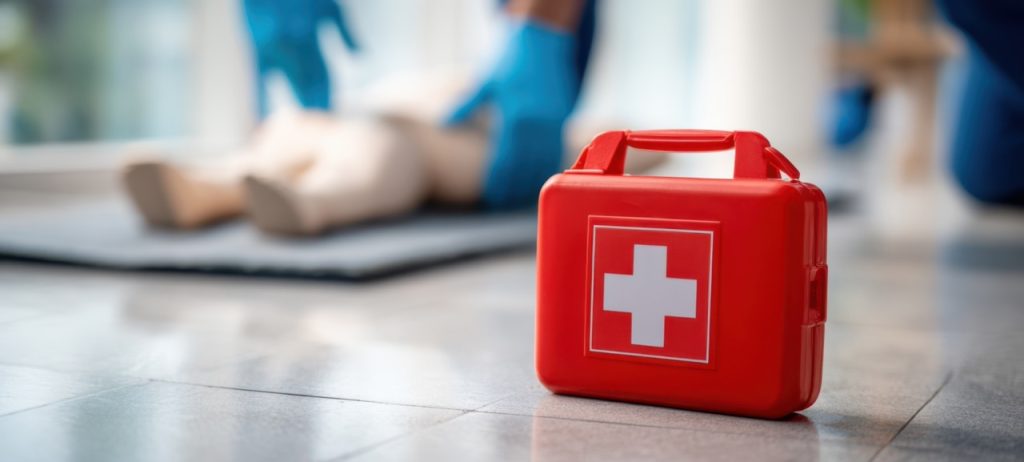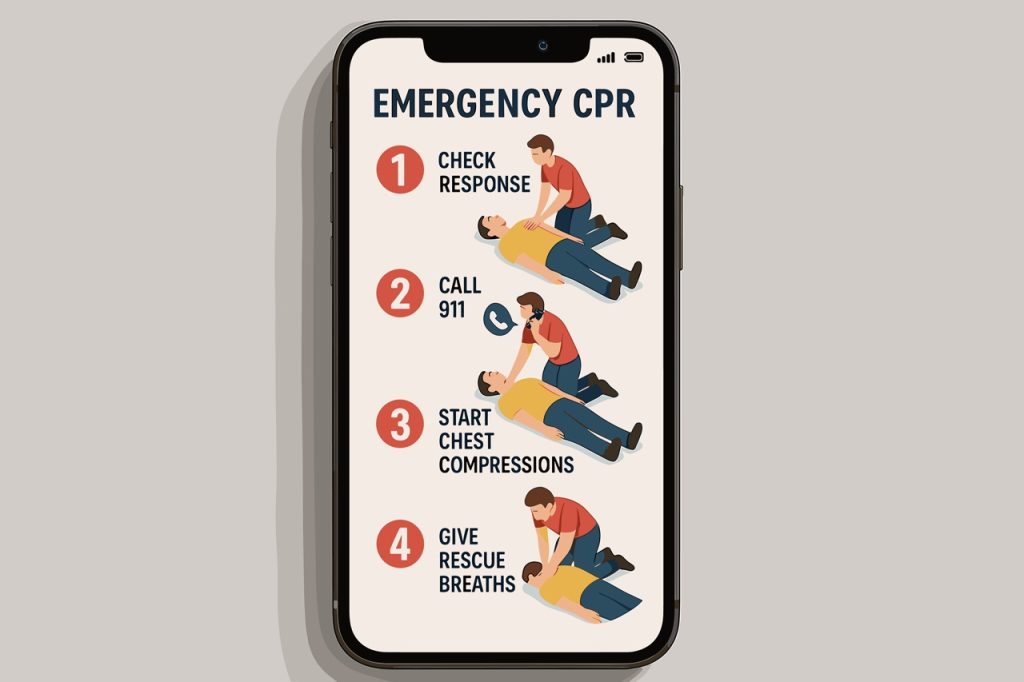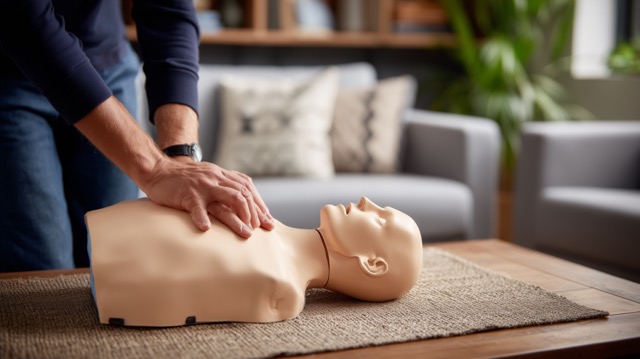When you start looking into CPR and First Aid training, you’ll quickly notice that some courses cover one, while others include both. So how do you know which you actually need? Keep reading to learn what each training involves, the key differences between them, and how to choose the option that’s right for you.

What is CPR Training?
CPR stands for cardiopulmonary resuscitation. This life-saving procedure is used on an individual when they are unconscious, unresponsive, and not breathing. CPR
CPR training teaches individuals how to respond effectively during an emergency. It includes identifying when to provide support, understanding when to administer CPR, and when it is not appropriate to do so. The training covers essential skills such as performing chest compressions, delivering rescue breaths, and using an Automated External Defibrillator (AED).
What is First Aid Training?
First aid training includes a variety of techniques for responding to injuries or medical emergencies. First aid training helps to equip individuals with the knowledge and skills necessary to provide immediate and at times life-saving assistance to someone experiencing a sudden injury. Typically, first aid training covers essential skills such as controlling bleeding, treating burns, assisting someone who is choking, and managing fractures.
Key Differences Between CPR and First Aid Training
While these certifications complement each other, they cover different skills and emergency situations. Here are some of the key differences you’ll find between the two:
|
CPR Training |
First Aid Training |
|
Primary focus is on life-threatening cardiac and breathing emergencies |
Primary focus is on treating common injuries and sudden illnesses |
|
Used when someone’s heart stops or they stop breathing |
Used for injuries like cuts, burns, sprains or choking |
|
Teaches chest compressions, rescue breaths and AED use |
Teaches bleeding control, burn care, splinting and other injury response |
|
Typically performed until emergency responders arrive |
Provides care until professional medical help is needed |
|
Often required for those in healthcare, childcare and safety roles |
Commonly required for workplaces, schools and facilities that serve the public |
|
Shorter, highly specific training |
Broader training covering many scenarios |
Who Should Take CPR and First Aid Training?
Anyone can benefit from regular CPR and First Aid training, but those who are especially inclined to keep up their certification include:
- Healthcare workers
- Childcare providers
- Workplace safety teams
- General public
- Employers and employees
- Teachers and coaches
- Parents and caregivers
- Outdoor and industrial workers
Related: How Often Should I Renew My CPR Certification?
CPR and First Aid Training Program Options
Although many training programs combine both CPR and first aid, not all do. So it’s important to know what skills or certifications you want or need to obtain before signing up. Also, classes can be offered in a variety of formats; some are in-person at an on-site location, while others are online.
At HeartCert, our training combines CPR and first aid because we firmly believe that in the case of a true medical emergency, being informed and capable of providing care to those around you is imperative.
Our goal is to make the certification process as easy and accessible as possible, which is why we offer several different program options so you can choose what is most beneficial and convenient to you.
Choose from our available training options:
At-Home Course: Complete your certification virtually online, and we’ll deliver a CPR manikin directly to your door.
Private CPR Class: Start by completing the first part of your CPR training online from the comfort of your home. When you’re ready, you can schedule a time to finish the hands-on portion at one of our CPR learning station locations.
In-Person Group Classes: Sign up for a class at one of our locations to complete your training in a classroom setting with an experienced instructor.
Corporate Training: Our instructors will come to your business or organization to train your team in CPR and first aid.
Customized CPR Training that Fits Your Life and Schedule
Be Prepared for Emergencies With HeartCert Trainings
When an emergency strikes, you can’t predict whether CPR or first aid will be the critical skill needed. The best approach is to prepare yourself for both scenarios and hope you never need to use either. Comprehensive training ensures you’re ready for whatever comes your way.
At HeartCert, our lifesaving education trainings are designed to be accessible and flexible. No matter your schedule, preference and learning style, we have CPR training designed with you in mind. From in-person training at one of our physical locations to online certification for greater flexibility, you can choose which option is best for you.
Schedule your CPR and first aid training today.
HeartCert is your trusted training partner for CPR, ACLS, PALS, EMR, First Aid, CNA, TMA, IV, EKG and more, throughout the United States.
Courses include CPR/AED/First Aid, Basic Life Support (BLS), Advanced Cardiac Life Support (ACLS), Pediatric Advanced Life Support (PALS), Certified Nursing Assistant training, IV training, EKG training, babysitter basics and more. Courses and certifications from both the American Heart Association and American Red Cross are available. We offer virtual courses and certifications, in all 50 states as well as in-person classes at our headquarters, HeartCert CPR Eagan and major cities in Iowa, Illinois, Michigan, Minnesota, Missouri, Mississippi, Nebraska, Pennsylvania, Texas and Wisconsin.















